How German media wound up misrepresenting the AstraZeneca jab
Political briefings - not facts and figures - may explain ‘incorrect’ claims
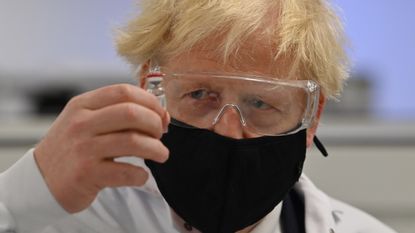
The German newspaper behind widely denied reports that the Oxford-AstraZeneca vaccine is only 8% effective in over-65s has doubled-down on its claims.
After the story was denied by both the German Health Ministry and the drug’s maker, Handelsblatt published a second article, headlined “controversy over AstraZeneca vaccine”, repeating “concerns about a low level of protection among seniors”. The story was also amplified by German tabloid Bild, which claimed the efficacy of the drug among over-65s was “less than 10%”, also citing anonymous sources.
Attributing the claims to a “multiple sources familiar with the German vaccination policy”, the journalist behind the Handelsblatt story has tweeted that the story is “a sourced piece of (political) reporting”, suggesting that it is not based on data seen by the paper.
Subscribe to The Week
Escape your echo chamber. Get the facts behind the news, plus analysis from multiple perspectives.

Sign up for The Week's Free Newsletters
From our morning news briefing to a weekly Good News Newsletter, get the best of The Week delivered directly to your inbox.
From our morning news briefing to a weekly Good News Newsletter, get the best of The Week delivered directly to your inbox.
AstraZeneca chief executive Pascal Soriot has denied the story in no uncertain terms, telling La Repubblica that “it’s incorrect… I don't know where these numbers come from”. Calling for people to “really focus on the details and focus on the regulators”, Soriot added: “There may also be local political considerations sometimes?”
And this is where the cracks within Handelsblatt’s reporting may be explained.
Writing in the New Statesman, international correspondent Ido Vock notes that the report “emerged as a political story, briefed from political sources”. In other words, the Handelsblatt stories appear to be based not on facts and figures, “but briefings and counter-briefings from anonymous sources” that risk “muddying the waters by throwing around incendiary claims”.
In normal political coverage, basing stories on anonymous briefings is standard practice. But “the virus is not a political story suited to the palace intrigue of political journalism”, Vock says. “It is a medical story, and data such as the efficacy of a vaccine is not determined by government deliberation.”
In Handelsblatt’s follow-up story, published by last night, an anonymous source denied claims by the head of the European Medicines Agency and the German government that the report had confused the proportion of elderly people involved in clinical trials of the vaccine and its effectiveness among those age groups.
“Confusing the numbers is impossible,” the source reportedly said,
But more anonymous briefings - and no solid figures - have done little to diffuse the suggestion that the original story “was a load of cobblers”, says Politico’s Alex Wickham.
Create an account with the same email registered to your subscription to unlock access.
Sign up for Today's Best Articles in your inbox
A free daily email with the biggest news stories of the day – and the best features from TheWeek.com
Joe Evans is the world news editor at TheWeek.co.uk. He joined the team in 2019 and held roles including deputy news editor and acting news editor before moving into his current position in early 2021. He is a regular panellist on The Week Unwrapped podcast, discussing politics and foreign affairs.
Before joining The Week, he worked as a freelance journalist covering the UK and Ireland for German newspapers and magazines. A series of features on Brexit and the Irish border got him nominated for the Hostwriter Prize in 2019. Prior to settling down in London, he lived and worked in Cambodia, where he ran communications for a non-governmental organisation and worked as a journalist covering Southeast Asia. He has a master’s degree in journalism from City, University of London, and before that studied English Literature at the University of Manchester.
-
 'Good riddance to the televised presidential debate'
'Good riddance to the televised presidential debate'Instant Opinion Opinion, comment and editorials of the day
By Harold Maass, The Week US Published
-
 Caitlin Clark the No. 1 pick in bullish WNBA Draft
Caitlin Clark the No. 1 pick in bullish WNBA DraftSpeed Read As expected, she went to the Indiana Fever
By Peter Weber, The Week US Published
-
 Today's political cartoons - April 16, 2024
Today's political cartoons - April 16, 2024Cartoons Tuesday's cartoons - sleepyhead, little people, and more
By The Week US Published
-
 Covid four years on: have we got over the pandemic?
Covid four years on: have we got over the pandemic?Today's Big Question Brits suffering from both lockdown nostalgia and collective trauma that refuses to go away
By Chas Newkey-Burden, The Week UK Published
-
 The hollow classroom
The hollow classroomOpinion Remote school let kids down. It will take much more than extra tutoring for kids to recover.
By Mark Gimein Published
-
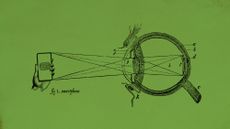 Excess screen time is making children only see what is in front of them
Excess screen time is making children only see what is in front of themUnder the radar The future is looking blurry. And very nearsighted.
By Devika Rao, The Week US Published
-
 Covid-19: what to know about UK's new Juno and Pirola variants
Covid-19: what to know about UK's new Juno and Pirola variantsin depth Rapidly spreading new JN.1 strain is 'yet another reminder that the pandemic is far from over'
By Arion McNicoll, The Week UK Published
-
 Long-term respiratory illness is here to stay
Long-term respiratory illness is here to stayThe Explainer Covid is not the only disease with a long version
By Devika Rao, The Week US Published
-
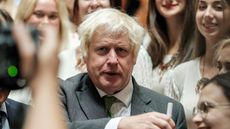 Covid inquiry: the most important questions for Boris Johnson
Covid inquiry: the most important questions for Boris JohnsonTalking Point Former PM has faced weeks of heavy criticism from former colleagues at the public hearing
By The Week Staff Published
-
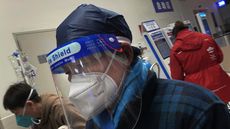 China's pneumonia cases: should we be worried?
China's pneumonia cases: should we be worried?The Explainer Experts warn against pushing 'pandemic panic button' following outbreak of respiratory illness
By Keumars Afifi-Sabet, The Week UK Published
-
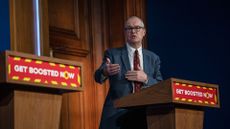 Vallance diaries: Boris Johnson 'bamboozled' by Covid science
Vallance diaries: Boris Johnson 'bamboozled' by Covid scienceSpeed Read Then PM struggled to get his head around key terms and stats, chief scientific advisor claims
By The Week UK Published